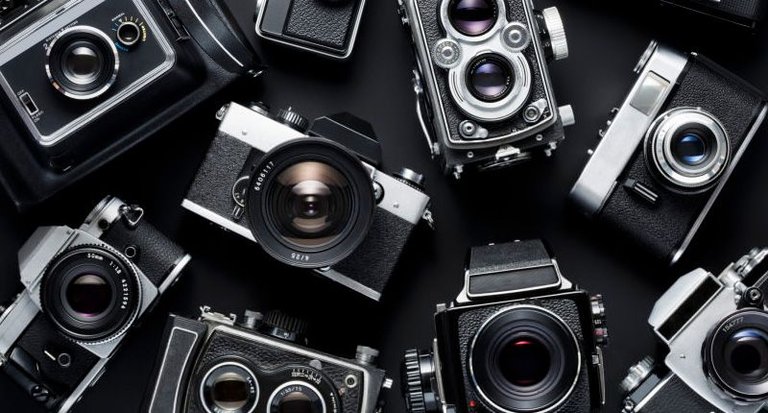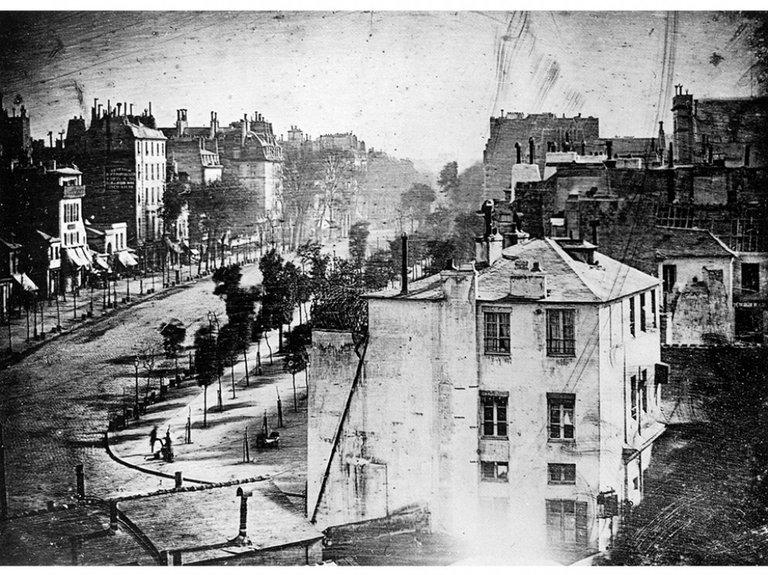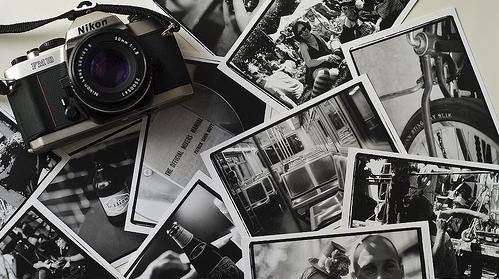
History Photography began in the 19th century. The year 1839 was the year of the birth of photography. At that time, in France officially declared that photography is a technological breakthrough. At that time, two-dimensional recording as seen by eye can be made permanent.

The history of photography began long before Christ. In the 5th century BC (BC), a man named Mo Ti observed a symptom. If on the walls of a dark room there is a small hole (pinhole), then in the interior space will be reflected outside the scene in reverse through the hole. Mo Ti was the first to realize the phenomenon of camera obscura.
Centuries later, many realized and admired this phenomenon, call it Aristotle in the 3rd century BC and an Arab scientist Ibn Al Haitam (Al Hazen) in the 10th century BC, who sought to create and develop a tool that is now known as a camera. In 1558, an Italian scientist, Giambattista della Porta called a "camera obscura" on a box that helped painters capture images.
The name of the obscura camera was invented by Johannes Kepler in 1611. Johannes Kepler created a portable camera design that was made like a tent, and named the device a camera obscura. Inside the tent is very dark except for a little light captured by the lens, which forms a picture of the state outside the tent on a piece of paper.
Various studies began in the early seventeenth century, an Italian scientist Angelo Sala used sunlight to record a series of words on a silver chloride plate. But he failed to retain the image permanently. Around the year 1800, Thomas Wedgwood, a British experimenting to record a positive image of the image on a lens camera obscura, the result is very disappointing. Humphrey Davy conducted further experiments with silver chloride, but the same fate even though it has managed to capture images through a camera without obscura lens.
Finally, in 1824, a French lithography artist, Joseph-Nicephore Niepce (1765-1833), after eight hours exposed the view from his bedroom window, through a process called Heliogravure (a lithographlike process) on a metal plate lined with asphalt , managed to give birth to a picture that is somewhat blurred, managed to also retain the image permanently. He continued his experiment until 1826, this is what eventually became the earliest history of photography. The resulting photo is now stored at the University of Texas at Austin, USA.
Research after research continued until the date of August 19, 1839, the opera stage designer who is also a painter, Louis-Jacques Mande 'Daguerre (1787-1851) was named the first person to have made the actual photograph: a permanent image on a silver copper plate which is coated with an irradiated iodine solution for one and a half hours of direct light with a mercury (fluorescent) heater. This process is called daguerreotype. To create a permanent image, the plates are washed with salt solution and distilled ashes. January 1839, Daguerre actually wanted to patent his findings. However, the French government thinks the findings should be shared around the world free of charge.

Photography then develops very quickly. Through Eastman's Kodak, George Eastman developed photography by creating and selling practical rolls of crises and box cameras, in line with developments in photography through lens, shutter, film and photo paper improvements.
In 1950, to facilitate the projection on Single Lens Reflex camera then started to use prism (SLR), and Japan began to enter the world of photography with the production of Nikon cameras which later followed by Canon. In 1972 Polaroid camera Edwin Land's findings began to be marketed. Polaroid camera can produce images without going through the process of developing and printing film.

Technological advancements also spur photography very quickly. If the first camera as a tent can only produce images that are not too sharp, digital cameras are now just as big as a wallet capable of making very sharp images in the size of the newspaper.
Hi! I am a robot. I just upvoted you! I found similar content that readers might be interested in:
https://steemit.com/story/@dinasapitri/understanding-and-brief-history-of-photography-201787t231516531z